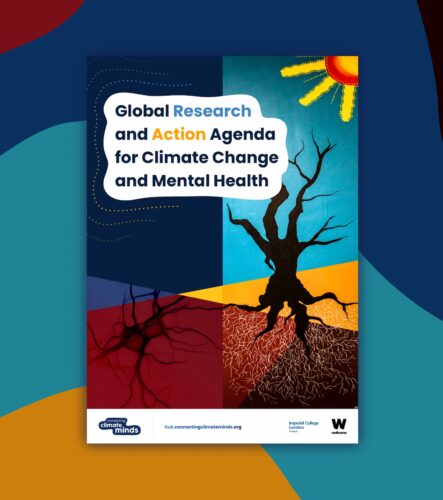
Mental Health Climate Change
• Tools
WHAT IS PLANETARY HEALTH?
Environmental degradation impacts mental health through increased frequency and severity of diseases, disorders, and distress while reducing modifiers that promote well-being, such as nutrition and social capital.
Studies illuminate both the mental health benefits of exposure to nature and the harms—including anxiety, depression, substance abuse, PTSD, and suicide—that have been linked to environmental degradation. While more research is needed, a growing evidence base explores the mental health dimensions of global environmental change.
Global environmental change negatively impacts mental health through various mechanisms, ranging from the direct effects of extreme weather events to the long-term consequences of disrupted livelihoods, food and water insecurity, and dislocation. Other studies have linked exposure to high levels of heat to sleep loss, and associated particulate air pollution and higher rates of postpartum depression. Awareness of the degradation of Earth systems is associated with eco-anxiety or solastalgia. We also know that these mental health effects are disproportionately experienced by certain communities including Indigenous peoples, low-income individuals, children, older adults, individuals with disabilities and chronic illnesses, among others.
At the same time, it is important to note the benefits of spending time in nature. A review of randomized control trials shows that nature-based interventions improve depressive mood, reduce anxiety, and reduce negative affect. Better understanding of both these risks and benefits could meaningfully inform resource management decisions and urban design to mitigate the mental health impacts of environmental change.
Mental Health Climate Change
• Tools
Displacement and Conflict Mental Health
• Research & Reports
Mental Health Air Pollution
• Research & Reports
Mental Health Technology and Innovation
• News
Mental Health Noncommunicable Diseases
• Research & Reports
Mental Health Youth Voices
• News




